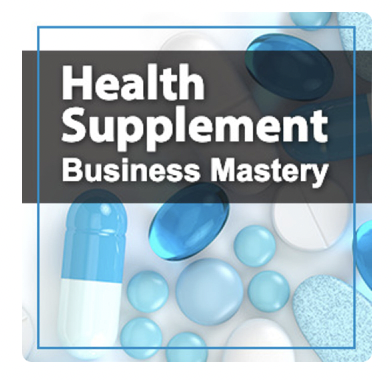For those in the dietary supplement industry, advertising on Facebook can be a challenge due to the platform’s strict policies.
So, can you advertise dietary supplements on Facebook?
The answer is yes, but with some significant restrictions.
Facebook has a set of advertising policies that all advertisers must follow, and these policies can make it difficult to promote dietary supplements.
Many of my supplement clients are using Facebook to advertise but it is a tricky platform. Even more so now in 2023 with all of the privacy changes and tracking problems.
It’s certainly not as easy as it once was and Facebook advertising costs have gone way up.
Even the biggest supplement marketers have troubles from time to time on Facebook.
The big difference is that the big guys are using large Facebook ad agencies that have dedicated Facebook representatives. The little guys do not have access to this direct line to Facebook.
So when they inevitably cross a line against their policy, which is often a very gray area, there is no recourse with Facebook. You just get slapped and banned form their platform.
In this article, I will explore the guidelines that must be followed when advertising supplements on Facebook and provide some tips on how to create effective ad campaigns that comply with these policies to avoid getting the ban hammer.
However, Facebook is only one platform for advertising dietary supplements. Facebook may not right for your supplement or it may just be one of the several marketing channels in which to market for you. If you want to know what other marketing channels work well for advertising dietary supplements, I wrote another article all about supplement marketing where you will discover other marketing opportunities and strategies that work.
How to Work With Facebook’s Policies on Advertising Dietary Supplements
As a marketer, I understand the importance of social media platforms like Facebook in reaching a wider audience.
However, before advertising dietary supplements on Facebook, you need to be familiar with their advertising policies.
Facebook has several regulations that apply to ad campaigns, depending on the product type and advertising approach.
Prohibited Dietary Supplements on Facebook
Facebook prohibits advertising for certain types of dietary supplements, including:
- Supplements that contain ephedra or ephedrine
- Supplements that claim to cure, prevent, or treat a disease or medical condition
- Supplements that contain anabolic steroids or steroid-like substances
- Supplements that contain human chorionic gonadotropin (hCG)
- Supplements that contain melatonin and are marketed as sleep aids
The big one that trips most supplement marketers up is: Supplements that claim to cure, prevent, or treat a disease or medical condition.
Now in the supplement advertising space you’re not allowed to treat any disease or medical condition.
So that means you’re also not allowed to even mention the name of a medical condition, like Asthma for example or Eczema.
You’re also not allowed to claim to cure. To learn more on what claims are allowed in general by the FDA, click here to read an article I wrote that covers that extensively.
The big difference with FDA guidelines on what you can and can’t say and Facebooks guidelines is in the prevention part.
Dietary supplements have always been seen as a preventative measure not a cure.
But according to Facebook’s policy even presenting your supplement as a preventative is against their guidelines.
Allowed Dietary Supplements on Facebook
Facebook does allows advertising for dietary supplements that comply with the platform’s advertising policies.
These policies include:
- Supplements that are not prohibited by law
- Supplements that do not contain any unsafe substances
- Supplements that do not make any false or misleading claims
- Supplements that do not contribute to negative self-perception to promote diet, weight loss, or other health-related products
When advertising dietary supplements on Facebook, it’s important to ensure that the ad content complies with these policies.
Marketers should avoid making exaggerated or false claims about the supplement’s benefits.
Often times a supplement ad on Facebook will get disapproved.
You’re probably familiar with that email you get shortly after you submit your ad campaign and it gets rejected with no reason or explanation why.
This is one area where having a dedicated Facebook account representative can help.
But you can only get a Facebook rep if you’re spending millions on their ads.
Which is why the large ad agencies have them. All of their clients combines easily spend over a million per month on Facebook.
But for the little guy, you’re left in the dark.
One common reason an ad might get flagged by Facebook policy is the marketing messaging.
And it may not even be the ad you’re trying to get on Facebook. It could be the landing page that ad is sending traffic to.
Facebook does look at that as well.
A big reason why some people’s ads or landing pages have a hard time getting approved is because they call out or assume the user is in a ‘negative current state.’
Facebook wants 2 things:
1. To ensure their users DON’T feel bad, or have a bad experience
2. To ensure their users DON’T feel like their data is being mined or sold.
So if you’re selling a pain cream…
Saying something as harmless as “Get back to a life without foot pain” is enough to get your ad declined…
Because it implies that their life is full of pain right now.
And it focuses on the negative.
So rules #1 and #2 above are broken.
However, saying something like, “Start enjoying walks and hikes” works well.
Because it doesn’t make the user feel like their data is being sold…
And it focuses on the positive.
More advanced marketers know that…
If you call out the user, for example, Got Skin Problems?, you’re going to have a better result.
But that’s a negative according to Facebook.
Why?
Because Facebook is looking at it from the users perspective.
From the users perspective it feels like Facebook is “spying” on them. Like they mysteriously know that they have skin problems.
This may seem silly and it is. But if you actually had skin problems it would feel like Facebook knowns that about you and that feels creepy.
It can also make the user feel bad, and Facebook wants the user to feel positive.
More advanced marketers also know that…
If you call out the problem and agitate the symptoms, you’re going to have a better result.
But that’s also a negative according to Facebook.
Leaving out both of those or even one of those is going to lower your conversion to sale rate on Facebook.
But you’re forced to in order to advertise on Facebook or try to fly under the radar by not spending much on Facebook ads.
Facebook’s policies on advertising dietary supplements are strict.
If you want to advertise supplements on Facebook it’s important to comply with them to avoid ad rejection or account suspension.
Requirements for Advertising Dietary Supplements on Facebook
Overall Facebook’s policies water down the power of direct response advertising.
Leaving it to be a lower powered customer acquisition channel.
It is really better at middle and bottom of the funnel advertising. Which could be straight forward offer driven ads, that offer a discount.
Here are some additional restrictions on targeting to keep in mind when advertising dietary supplements on Facebook.
Age and Geography Restrictions
Facebook has specific age and geography restrictions for advertising dietary supplements.
For example, ads for dietary supplements that contain ephedra are prohibited in the United States.
Additionally, ads for dietary supplements that target minors are not allowed.
Prohibited Targeting
Facebook also has rules about how ads can be targeted.
Ads cannot target people based on sensitive personal information, such as health conditions or sexual orientation.
They cannot use user data to infer someone’s health status or make assumptions about their interests.
Ads must be targeted in a way that respects people’s privacy and dignity.
Overall, it’s important to remember that Facebook’s policies are designed to protect Facebook and the users perception of Facebook.
Disclaimers and Disclosures
Facebook requires marketers to include disclaimers and disclosures in their ads for dietary supplements.
These disclaimers and disclosures must be clear and conspicuous, and must accurately convey the benefits and risks of the product.
For example, if you are advertising a dietary supplement that promotes weight loss, you need to include a disclaimer that states that results may vary and that the supplement should be used in conjunction with a healthy diet and exercise.
Landing Pages and Products
Like I mentioned earlier it goes beyond just the ad, to the next click, the landing page as well.
Facebook requires marketers to ensure that their landing pages and products comply with its advertising policies.
For example, landing pages for dietary supplement ads must not contain deceptive, false, or misleading claims.
Additionally, the products must be safe, legal, and effective.
Discover the 3 funnels that can help your health supplement business succeed.

Listen to the Health Supplement Business Mastery Podcast for for dietary supplement entrepreneurs and marketers.



